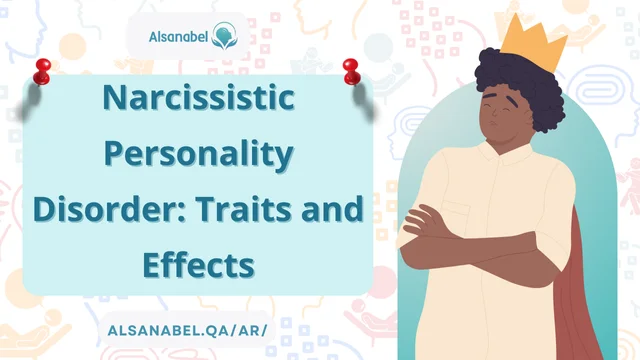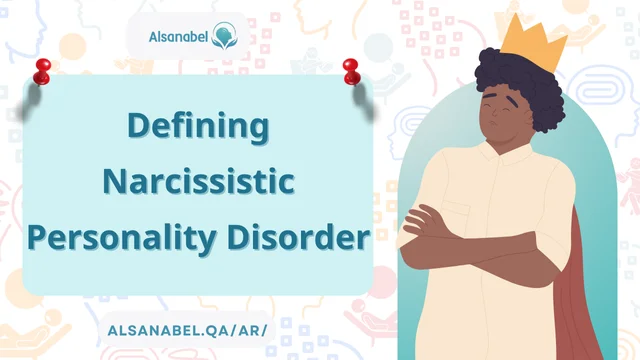
Narcissistic Personality Disorder (NPD) is a complex mental health condition that affects how individuals perceive themselves and interact with others. While often misunderstood, narcissistic personality disorder can have profound effects on relationships, careers, and overall life satisfaction. This article explores the defining traits of NPD, its impact on daily life, and the pathways to effective treatment.
Defining Narcissistic Personality Disorder
Narcissistic Personality Disorder is a mental health condition characterized by an inflated sense of self-importance, a constant need for admiration, and a lack of empathy for others. At its core, individuals with NPD often struggle with deep-seated insecurities masked by an outward appearance of confidence and superiority. Understanding NPD requires delving into its underlying dynamics, which often reveal a fragile self-esteem driving these behaviors.

Key Symptoms of Narcissistic Personality Disorder
Exaggerated Sense of Self-Importance
A hallmark of narcissistic personality disorder is an exaggerated sense of one’s abilities and achievements. Individuals with NPD may demand special treatment or expect recognition for accomplishments that others perceive as minor.
Lack of Empathy
One of the most defining symptoms of narcissistic personality disorder is a pronounced inability to empathize with the feelings or needs of others. This lack of empathy often leads to strained relationships, as the individual may dismiss or trivialize the concerns of those around them.
Intense Need for Admiration
People with NPD often seek constant validation and admiration from others. Whether through personal accomplishments, appearance, or status, they crave acknowledgment and can become defensive or hostile if they feel unappreciated.
Fragile Self-Esteem
Despite an outward projection of confidence, individuals with NPD frequently grapple with fragile self-esteem. This insecurity can manifest in hypersensitivity to criticism or a tendency to compare themselves unfavorably to others.
Manipulative Behaviors
To maintain control or secure admiration, individuals with NPD may engage in manipulative behaviors, such as gaslighting or exploiting others. These actions often stem from a need to protect their sense of superiority.
Understanding the Causes of NPD
Genetic and Biological Factors
Research suggests that genetics and brain structure may contribute to the causes of NPD. Variations in brain areas associated with empathy and emotional regulation have been linked to the disorder.
Environmental Influences
Early childhood experiences, such as excessive pampering or neglect, can play a significant role in the development of NPD. Parental attitudes, family dynamics, and cultural factors may shape an individual’s self-perception and interpersonal behaviors.
Psychological Factors
Deep-seated insecurities and defense mechanisms developed during formative years are also central to understanding NPD. These psychological factors often influence how individuals with NPD navigate relationships and their environment.
Impact of NPD on Relationships
Difficulty in Maintaining Relationships
The traits associated with NPD, such as lack of empathy and manipulative tendencies, often lead to conflicts and misunderstandings in relationships. Romantic partners, friends, and family members may struggle with the individual’s inability to prioritize their needs.
Tendency to Exploit Others
Individuals with NPD may view relationships as transactional, seeking to benefit from others’ resources, status, or emotional investment without offering genuine reciprocity.
Cycle of Idealization and Devaluation
Relationships with individuals with NPD are often marked by cycles of intense admiration followed by harsh criticism. This pattern can leave their partners feeling confused, undervalued, and emotionally drained.
Effective NPD Treatment Options
Psychotherapy
Psychotherapy is the cornerstone of NPD treatment. Therapeutic approaches at Al Sanabel Specialized Psychiatric Center In Qatar such as Cognitive Behavioral Therapy (CBT) and Schema Therapy help individuals recognize their behavior patterns, develop empathy, and build healthier relationships.
Group Therapy
Group therapy can provide individuals with NPD a structured environment to learn from others’ perspectives and practice interpersonal skills.
Medication
While there are no medications specifically for NPD, associated conditions such as depression, anxiety, or mood disorders can be managed with appropriate medication.
Self-Help Strategies
Encouraging self-reflection, mindfulness, and stress management techniques can help individuals with NPD begin to address their behaviors and develop healthier coping mechanisms.
Challenges in Treating NPD
Treating NPD poses unique challenges, primarily due to the individual’s reluctance to acknowledge their condition. Many people with NPD may seek help only when experiencing significant life disruptions, such as a relationship breakdown or professional setback.
Frequently Asked Questions

1. What are the characteristics of narcissistic personality disorder?
The characteristics include an exaggerated sense of self-importance, a lack of empathy, a need for constant admiration, and hypersensitivity to criticism.
2. How is NPD diagnosed?
A mental health professional diagnoses NPD based on clinical interviews, behavioral assessments, and criteria outlined in the DSM-5 (Diagnostic and Statistical Manual of Mental Disorders).
3. Can therapy help individuals with NPD?
Yes, therapy is effective in helping individuals with NPD develop self-awareness, empathy, and healthier interpersonal skills.
4. Is NPD more common in men or women?
Research indicates that NPD is more commonly diagnosed in men, though it can affect individuals of any gender.
5. How do I deal with a person with NPD?
Dealing with someone with NPD requires setting firm boundaries, managing expectations, and seeking support when needed. Encouraging them to seek professional help can also be beneficial.
Narcissistic personality disorder is a multifaceted condition that requires understanding, compassion, and a tailored approach to treatment. While the traits associated with NPD can strain relationships, effective therapy and support systems make it possible for individuals to improve their interactions and lead more balanced lives. Understanding and addressing the underlying causes is a crucial step in fostering empathy and encouraging positive change.
